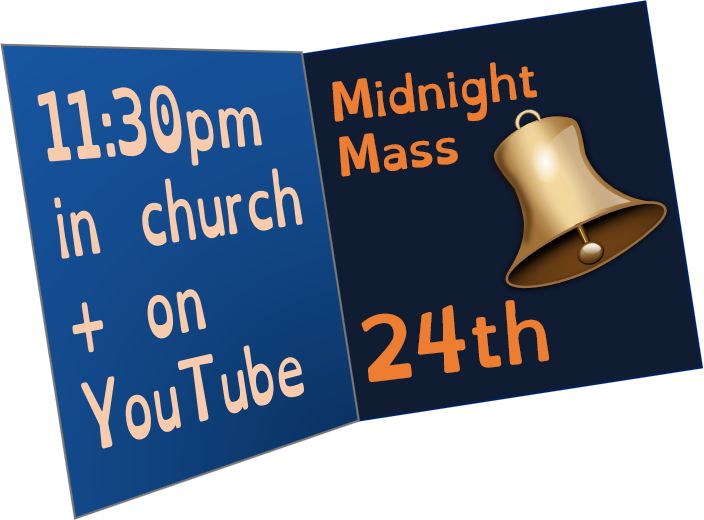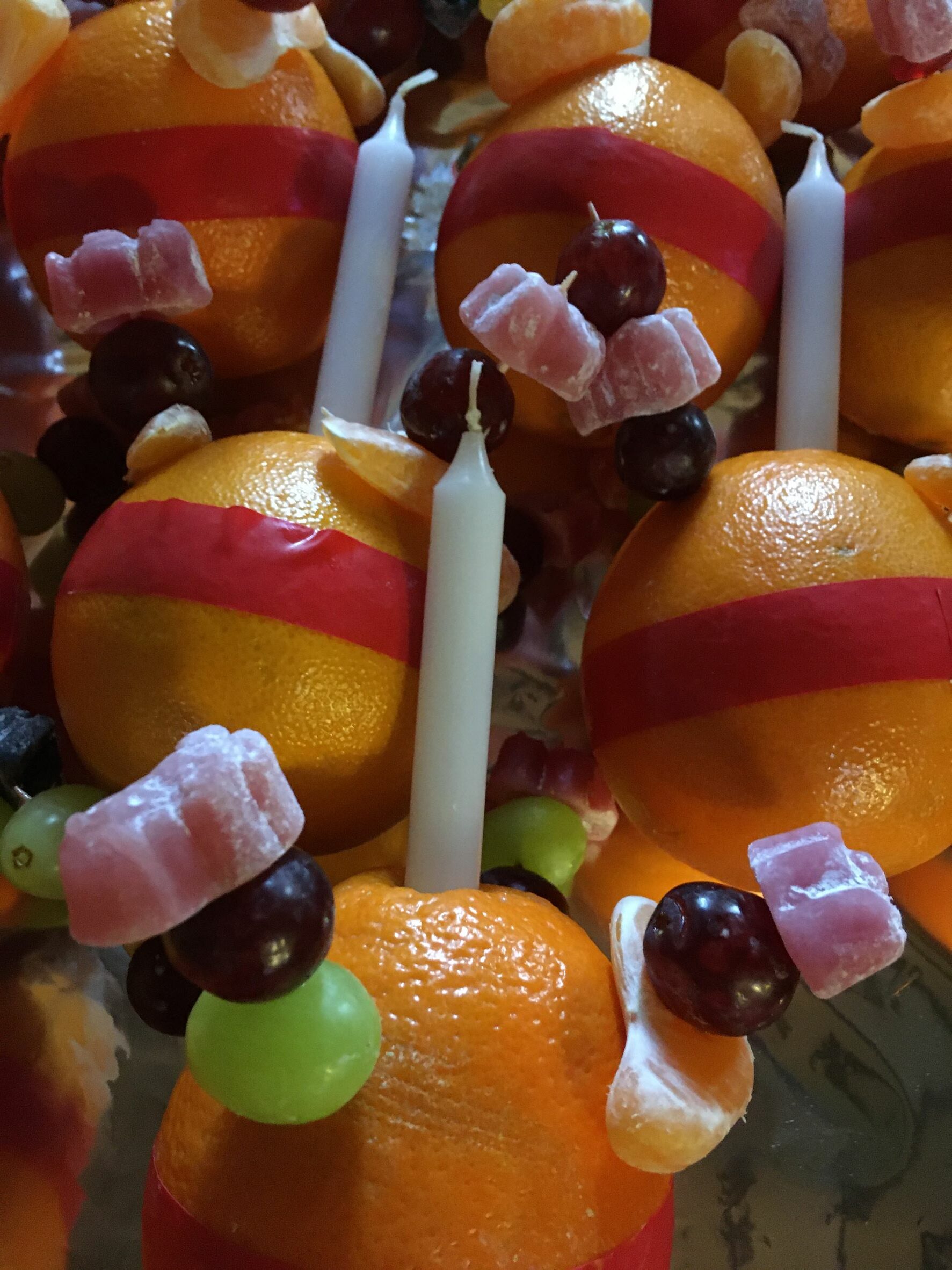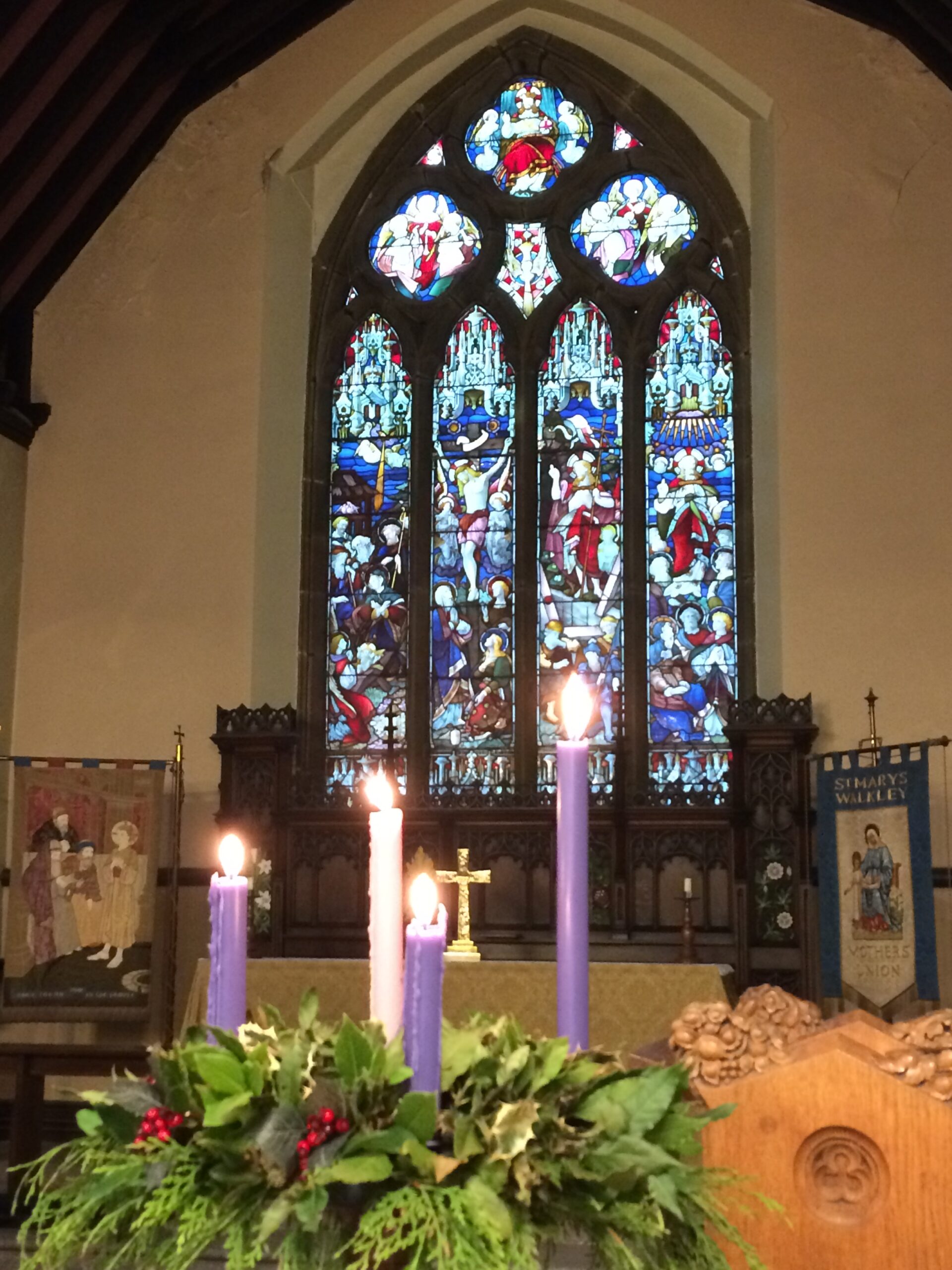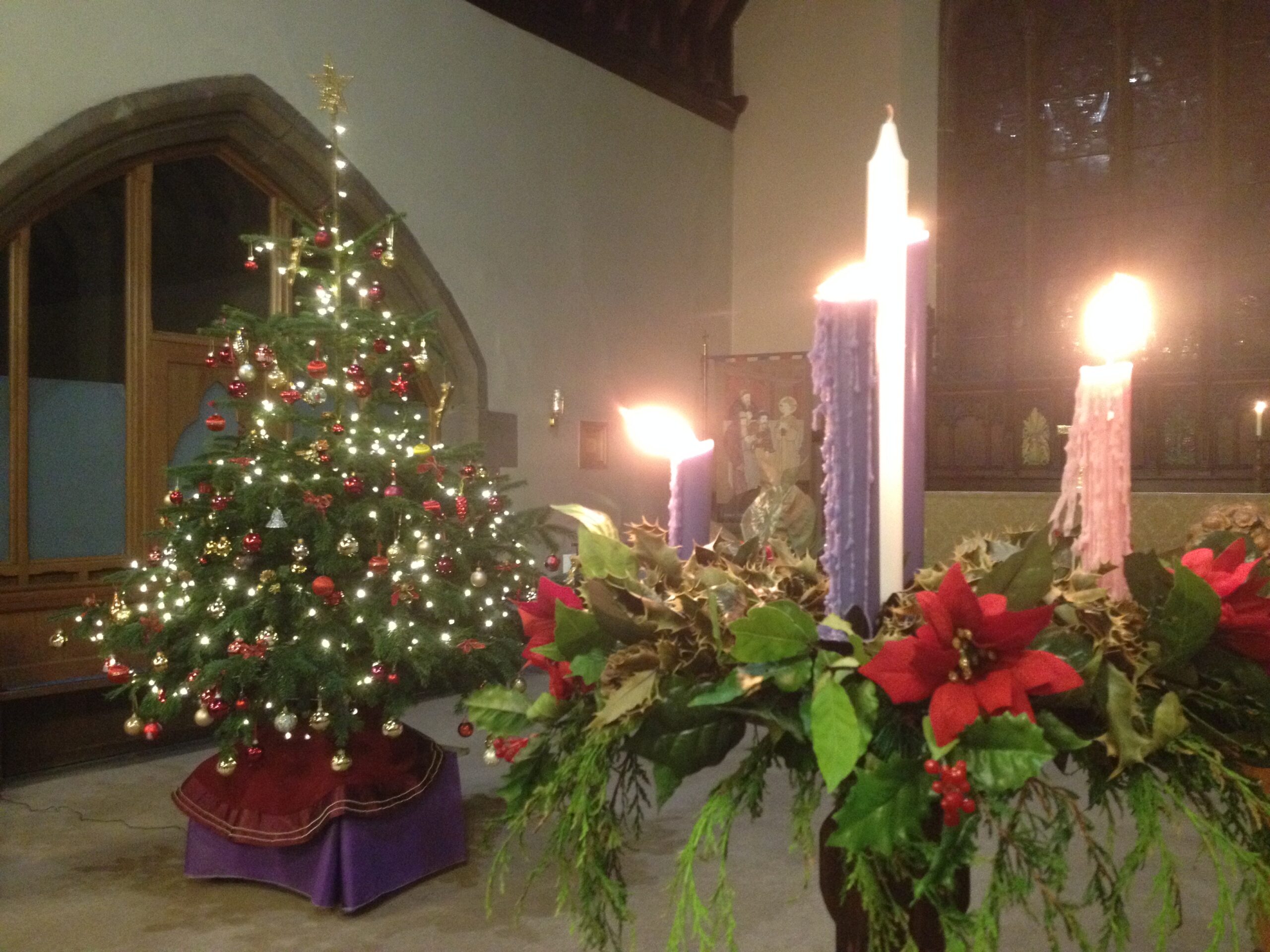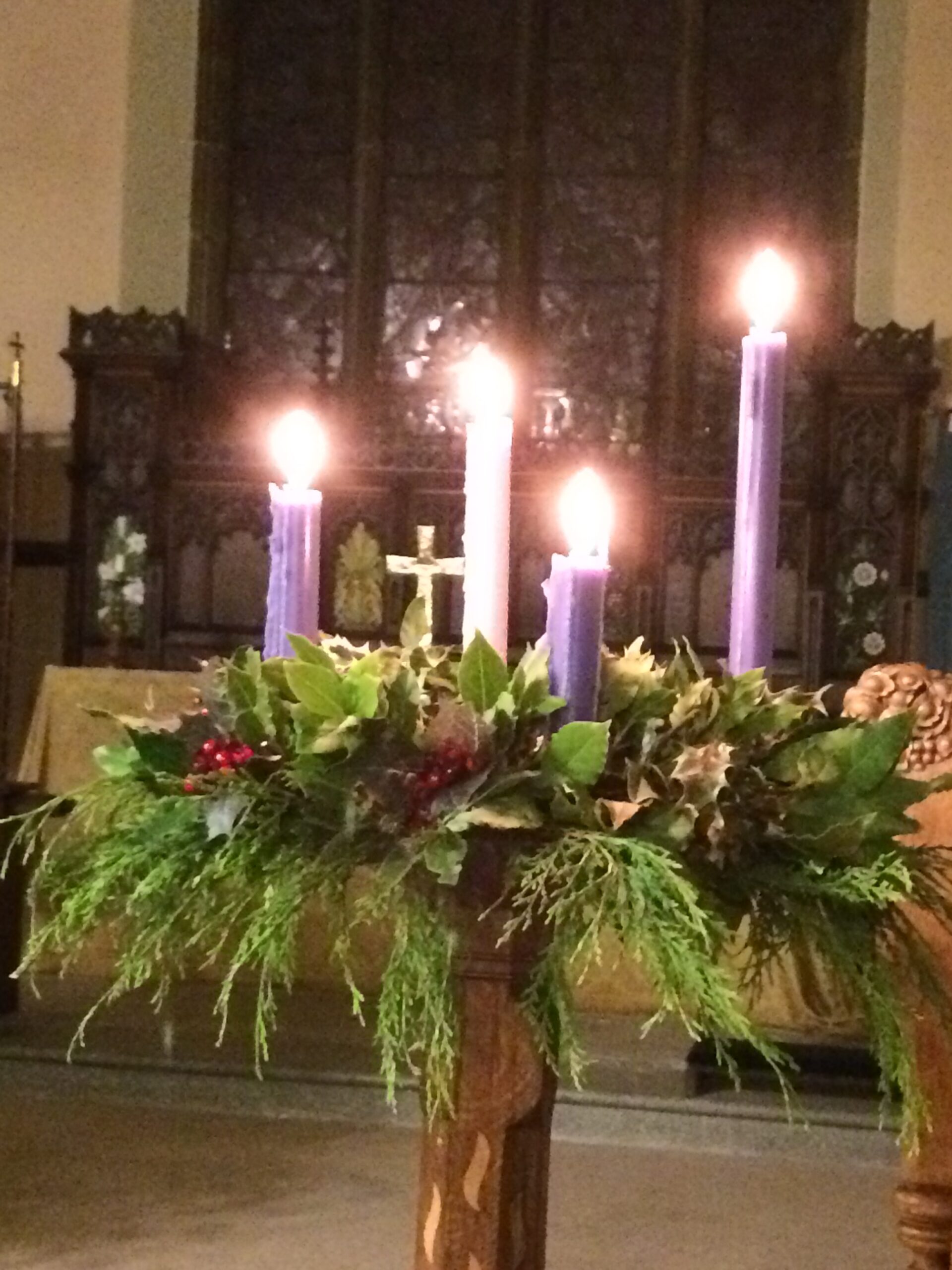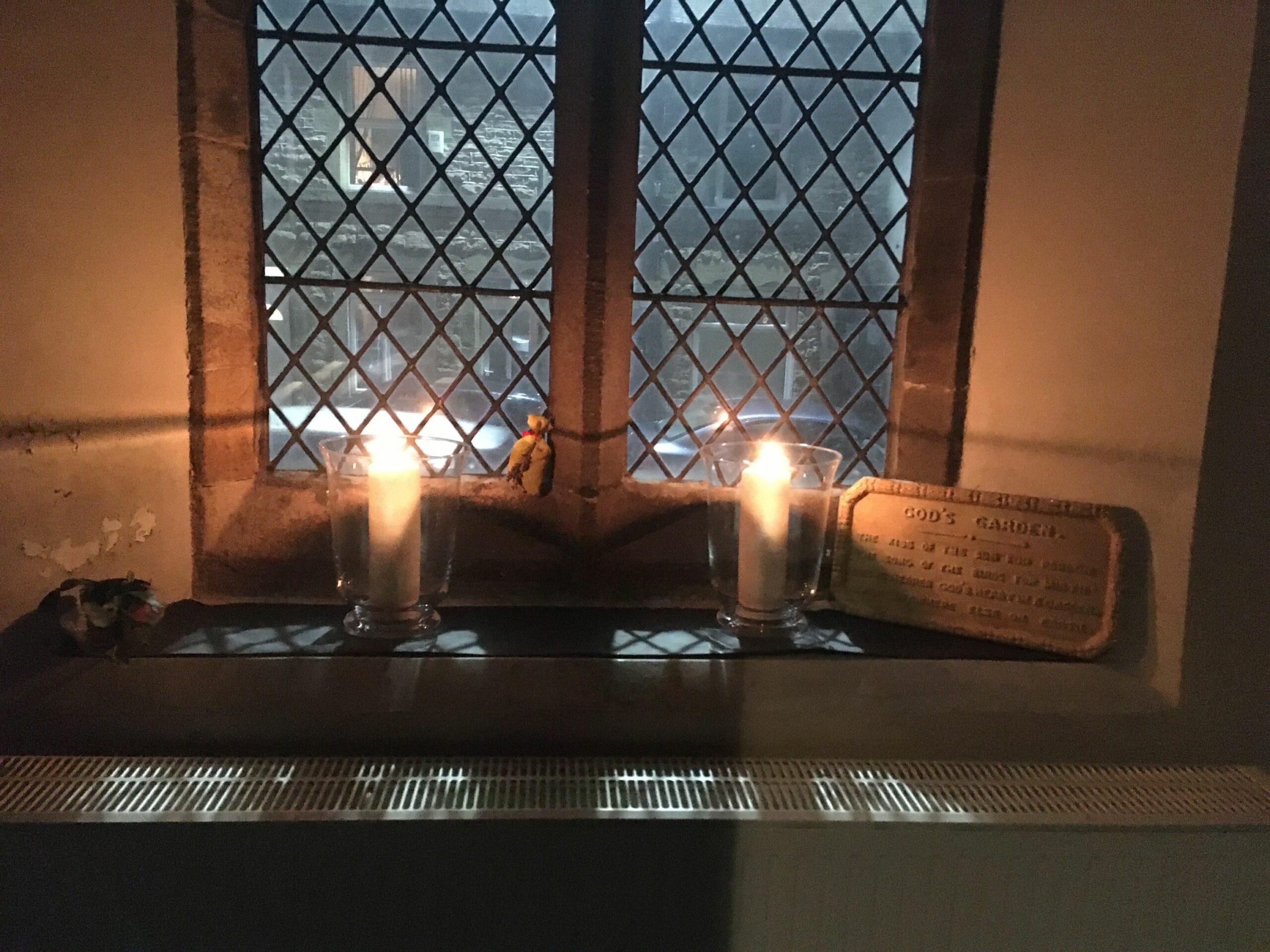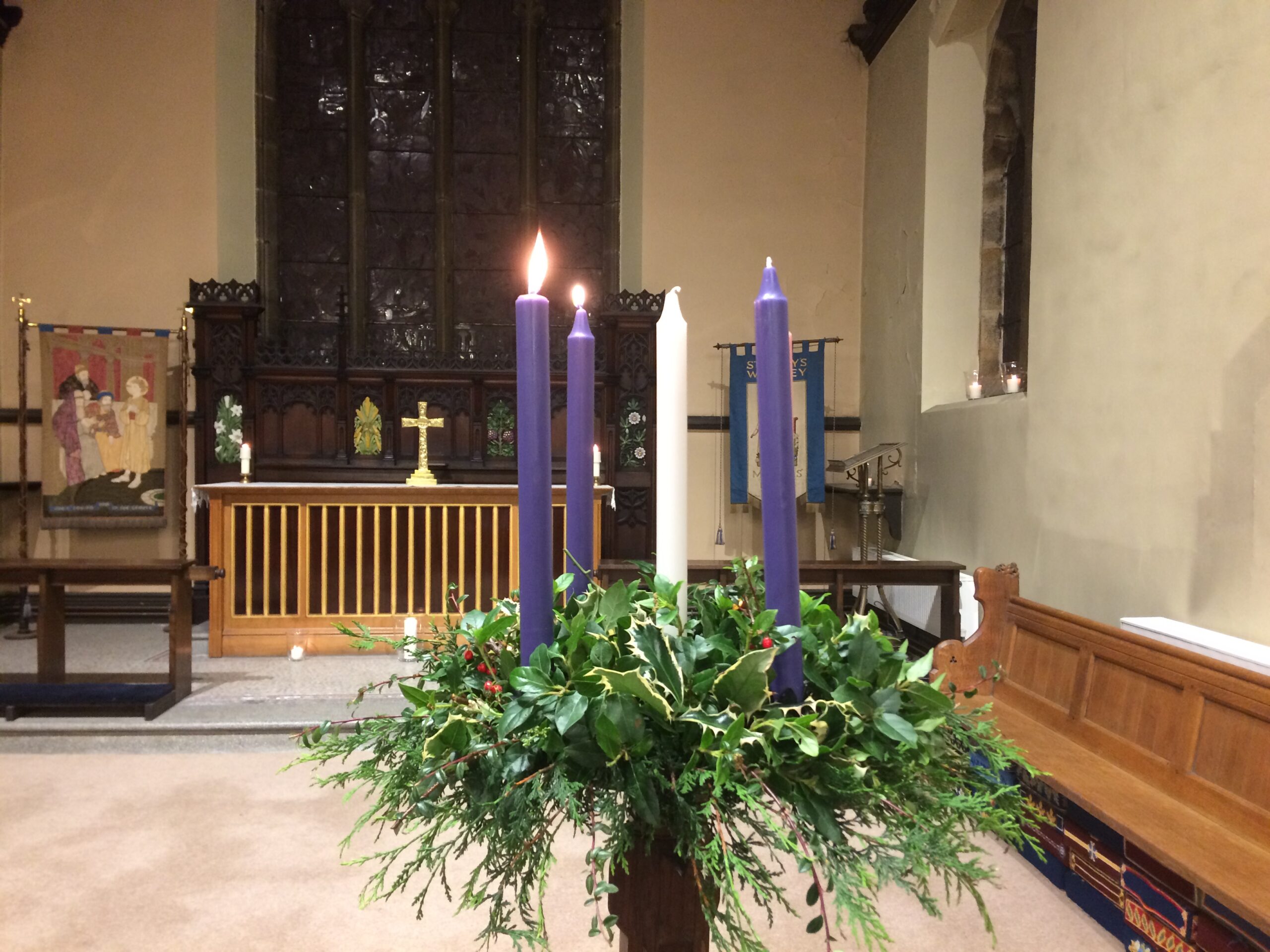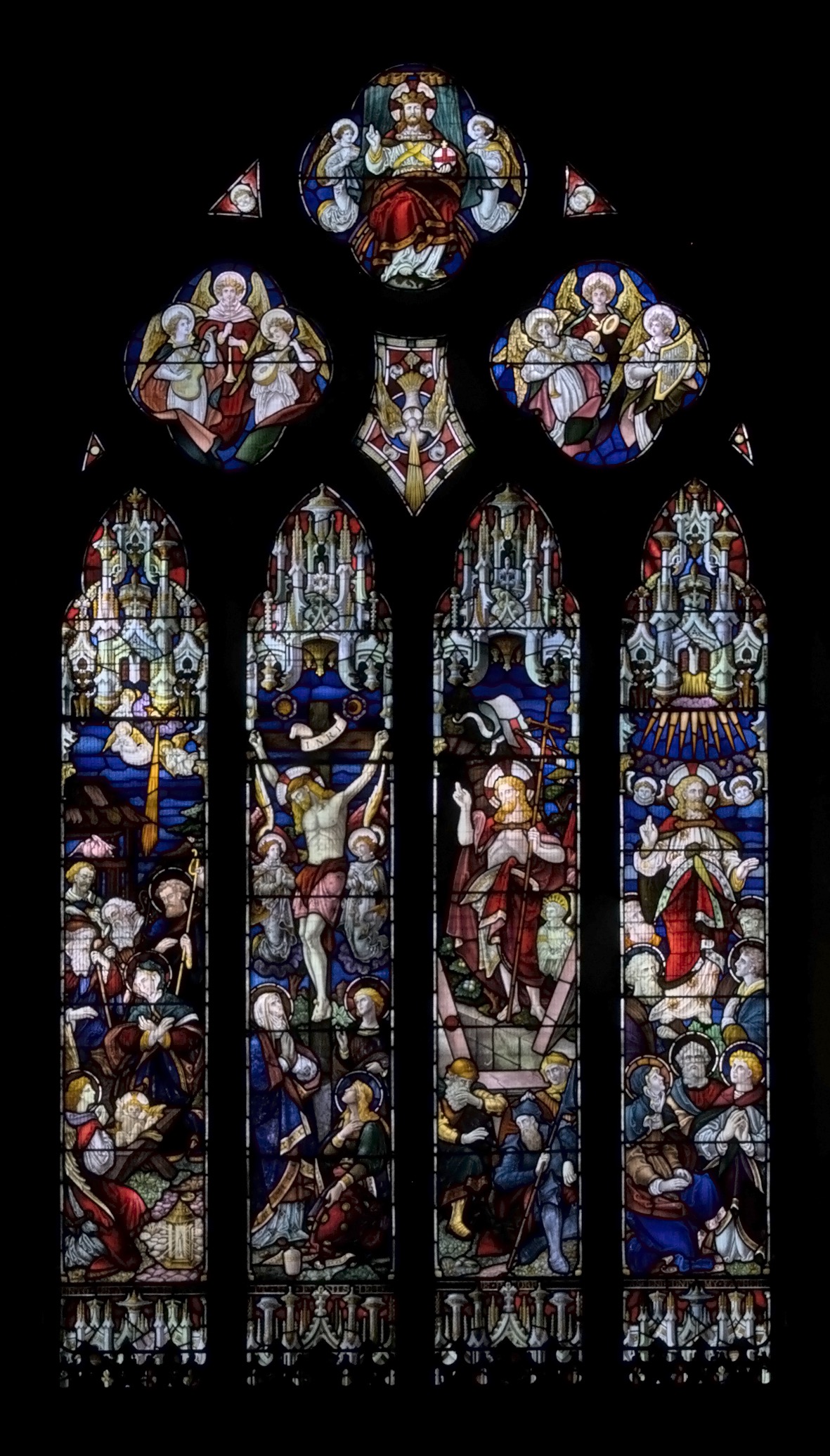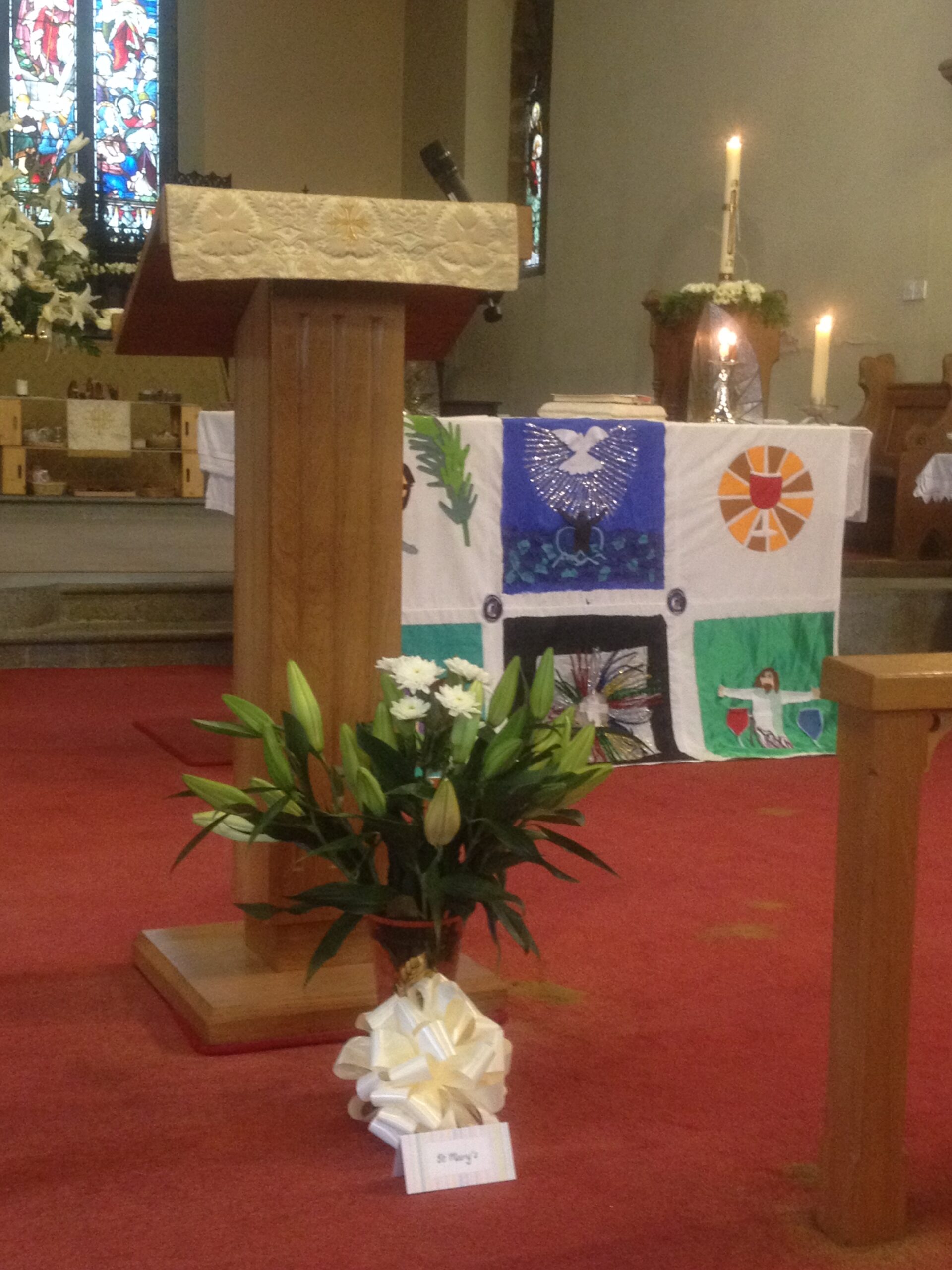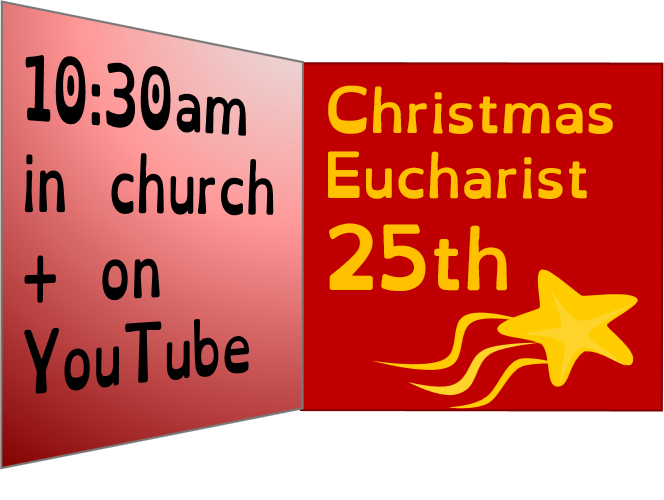
25th December 2023 Christmas Day Eucharist:
Watch this week's service on YouTube
Download the order of service here: 23 12 25 Christmas Day Eucharist
Read this week's Church News
The Readings
Isaiah 9. 2 - 7
The people who walked in darkness
have seen a great light;
those who lived in a land of deep darkness—
on them light has shined.
You have multiplied the nation,
you have increased its joy;
they rejoice before you
as with joy at the harvest,
as people exult when dividing plunder.
For the yoke of their burden,
and the bar across their shoulders,
the rod of their oppressor,
you have broken as on the day of Midian.
For all the boots of the tramping warriors
and all the garments rolled in blood
shall be burned as fuel for the fire.
For a child has been born for us,
a son given to us;
authority rests upon his shoulders;
and he is named
Wonderful Counsellor, Mighty God,
Everlasting Father, Prince of Peace.
His authority shall grow continually,
and there shall be endless peace
for the throne of David and his kingdom.
He will establish and uphold it
with justice and with righteousness
from this time onwards and for evermore.
The zeal of the Lord of hosts will do this.
Luke 2. 1 - 20
In those days a decree went out from Emperor Augustus that all the world should be registered. This was the first registration and was taken while Quirinius was governor of Syria. All went to their own towns to be registered. Joseph also went from the town of Nazareth in Galilee to Judea, to the city of David called Bethlehem, because he was descended from the house and family of David. He went to be registered with Mary, to whom he was engaged and who was expecting a child. While they were there, the time came for her to deliver her child. And she gave birth to her firstborn son and wrapped him in bands of cloth, and laid him in a manger, because there was no place for them in the inn.
In that region there were shepherds living in the fields, keeping watch over their flock by night. Then an angel of the Lord stood before them, and the glory of the Lord shone around them, and they were terrified. But the angel said to them, ‘Do not be afraid; for see—I am bringing you good news of great joy for all the people: to you is born this day in the city of David a Saviour, who is the Messiah, the Lord. This will be a sign for you: you will find a child wrapped in bands of cloth and lying in a manger.’ And suddenly there was with the angel a multitude of the heavenly host, praising God and saying,
‘Glory to God in the highest heaven,
and on earth peace among those whom he favours!’
When the angels had left them and gone into heaven, the shepherds said to one another, ‘Let us go now to Bethlehem and see this thing that has taken place, which the Lord has made known to us.’ So they went with haste and found Mary and Joseph, and the child lying in the manger. When they saw this, they made known what had been told them about this child; and all who heard it were amazed at what the shepherds told them. But Mary treasured all these words and pondered them in her heart.
The shepherds returned, glorifying and praising God for all they had heard and seen, as it had been told them.
Scripture Quotations are from: New Revised Standard Version Bible: Anglicized Edition, copyright © 1989, 1995 National Council of the Churches of Christ in the United States of America. Used by permission. All rights reserved worldwide. http://nrsvbibles.org
The Sermon
By Catherine, Reader at St Mary's.
I wonder if any of you have felt a sense of unease singing some of our
Christmas favourites this year? Can we sing about peace and calm in
Bethlehem or Jerusalem when the Holy Land is anything but peaceful at the
moment? Before the atrocities of October 7th and the appalling devastation in
Gaza since, Bethlehem’s hotels were fully booked. The innkeepers were
struggling to accommodate hopeful visitors. But now no one wants to visit and
there is plenty of room at the inn. Bethlehem has cancelled its Christmas
celebrations this year.
The land of Judah is not a safe place to be at the moment. But nor was it safe
during the time of Isaiah. The Assyrian empire was expanding, its people
overpowering their neighbours by unimaginably brutal means. Israel had
already fallen victim, her people killed or exiled. Judah feared the same could
happen to her.
Yet into this dangerous and frightening situation Isaiah proclaims a message of
hope. In some of the most beautiful and well-known poetry of the Old
Testament comes a promise.
The people who walked in darkness have seen a great light. The rod of the
oppressor has been broken, the soldiers’ boots and blood-stained garments will
be thrown on the fire. There will be peace, an everlasting rule of justice and
righteousness.
A voice of hope in a time of struggle. All will be well.
But who’s going to bring this about? A new-born baby!
A child has been born for us, a son given to us;
authority rests upon his shoulders;
and he is named
Wonderful Counsellor, Mighty God, Everlasting Father, Prince of Peace.
Hope for Judah’s people. A new king perhaps already born or yet to be born, a
descendent of King David’s line. A priest-king for the holy temple, God’s
representative in Jerusalem. Peace and order re-established on Earth.
But he will start out as a baby. He will need to be nurtured, to grow, to learn.
And in the meantime someone else will have to look after his needs – to feed
him, clothe him, keep him safe, help him to learn and reach his full potential.
He’s fragile, and living in a dangerous world. He might not make it. The
people of Judah will have to be patient. But they have hope.
****
Isaiah’s words continued to give hope to the people of Judah centuries later.
And the early church came to see them come to fulfilment in the person of
Jesus of Nazareth.
The story of the birth of Jesus has a simple beauty that in more peaceful years,
we sometimes forget that it, too, is set in difficult and dangerous times. The
land is ruled by a tyrannical and violent king. Mary and Joseph travel a great
distance because of the census, Mary heavily pregnant. When they arrive at
Bethlehem, all the rooms have been taken. The only available shelter is among
the animals. It will be dirty and smelly. No comfortable bed to lie on, no cot
for a newborn. And that’s where Mary gives birth. Then, when Jesus is still an
infant, the family has to flee from the violent king to Egypt for the baby’s
safety. Bethlehem is not a safe place to be. But Mary and Joseph have hope.
And they act on it.
At Christmas we continue to remember and celebrate Jesus’ birth in Bethlehem
year by year, generation by generation, and throughout the world. But
Christmas is also about the coming of Christ, born anew in every generation
and every place. In the prologue to John’s gospel, which was read at our
midnight service, we hear how Christ, the Word of God, was with God in the
Beginning, and how he came into the world to live amongst us.
There is no Christmas tree in Manger Square in Bethlehem this year.
Celebrations are muted. But as a reminder that Christ came into a troubled
world to be among us, standing in solidarity with the victims of violence, so the
holy family are there, represented still. Standing on rubble, surrounded by
razor wire is a nativity scene – Mary, Joseph and the infant Jesus. A reminder
that Christ continues to live amongst us.
The people who walked in darkness have seen a great light
The Prayers
Prepared by Shirley.
Let us pray to Jesus our Saviour.
Christ, born in a stable,
give courage to all who are homeless.
Jesus, Saviour,
hear our prayer.
Christ, for whom the angels sang,
give the song of the kingdom to all who weep.
Jesus, Saviour,
hear our prayer.
Christ, worshipped by the shepherds,
give peace on earth to all who are oppressed.
Jesus, Saviour,
hear our prayer.
Christ, before whom the wise men knelt,
give humility and wisdom to all who govern.
Jesus, Saviour,
hear our prayer.
Christ, whose radiance filled a lowly manger,
give the glory of your resurrection to all who rest in you.
Jesus, Saviour,
hear our prayer.
Jesus, Saviour, child of Mary,
you know us and love us,
you share our lives
and hear our prayer.
Glory to you for ever. Amen.
Common Worship: Times and Seasons, material from which is used here is copyright (c) 2010 The Archbishops' Council


